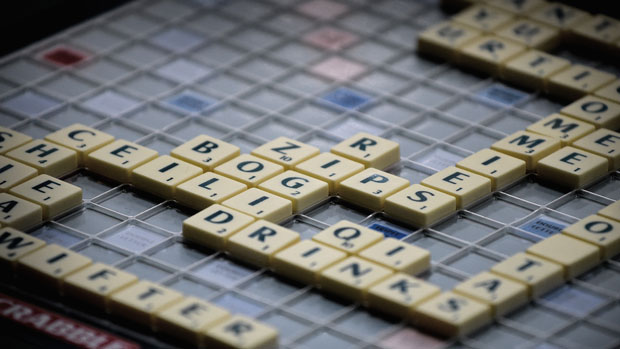Yeesh! Scrabble's new words aren't dench, say language lovers
The addition of slang and textspeak shows how language is evolving, but not everyone is impressed

A free daily email with the biggest news stories of the day – and the best features from TheWeek.com
You are now subscribed
Your newsletter sign-up was successful
Britain's most popular board game has been updated for the first time in four years to reflect how social media, smartphones and pop culture have revolutionised language.
The new version of Collins Official Scrabble Words has been published, with 6,500 words added to the official lexicon. These include twerking, hactivist and dench as well as onomatopoeic interjections like augh, blech, grr, waah and yeesh.
"Not all words are modern additions," points out The Guardian. Foreign words such as cinq, coqui (a tree-dwelling frog) and paczki (a round, filled doughnut) are among the latest inclusions.
The Week
Escape your echo chamber. Get the facts behind the news, plus analysis from multiple perspectives.

Sign up for The Week's Free Newsletters
From our morning news briefing to a weekly Good News Newsletter, get the best of The Week delivered directly to your inbox.
From our morning news briefing to a weekly Good News Newsletter, get the best of The Week delivered directly to your inbox.
Former British Scrabble champion Allan Simmons, who works as a consultant on the official Scrabble word list, said players would soon be "devouring" the useful new three-letter words, the Daily Mirror reports.
"This new update brings the renowned word list bang up-to-date with current usage, embracing all genres of words for young and old alike," he said.
But some word lovers are less than impressed with the new additions. "The correlation between people who use 'ridic' in everyday conversation and people who are massive idiots must be pretty close," tweeted journalist and social media producer Felicity Morse.
Sue Bowman, membership secretary of the British Association of Scrabble Players, said the new words were "an abuse of the English language".
A free daily email with the biggest news stories of the day – and the best features from TheWeek.com
"A lot of tournament players are not particularly happy about the new words that are being included," the former champion for the south west, told the Daily Telegraph. "They seem very artificial."
But linguists at Collins have defended the additions, saying dictionaries have always included both formal and informal English. "But it used to be hard to find printed evidence of the use of slang words," said head of language content Helen Newstead.
"Now people use slang in social media posts, tweets, blogs, comments, text messages – you name it – so there's a host of evidence for informal varieties of English that simply didn't exist before."
The comedian and founder of the National Scrabble Championship, Gyles Brandreth, supports the changes, suggesting critics should "hang loose and get down on the street".
"I think it adds to the richness," he said. "I advocate learning a new word every day of your life as a way of keeping the mind supple and young. So 'yolo'– or 'you only live once'."
Some of the words that have been added:
- Lolz (laughter) for 13 points
- Dench (excellent) for 11 points
- Tuneage (music) for eight points
- Obvs (obviously) for nine points
- Cakeages (charges for restaurant for serving cake brought in from outside) for 15 points
- Cazh (casual) for eight points
- Hacktivist (person who hacks computers for political reasons) for 22 points
- Shootie (type of shoe that covers the ankle) for ten points
- Showrooming (practice of looking at an item in a shop, using a smartphone to compare its price elsewhere, then buying it online) for 20 points
- Schvitz (to sweat) for 24 points
-
 What to know before filing your own taxes for the first time
What to know before filing your own taxes for the first timethe explainer Tackle this financial milestone with confidence
-
 The biggest box office flops of the 21st century
The biggest box office flops of the 21st centuryin depth Unnecessary remakes and turgid, expensive CGI-fests highlight this list of these most notorious box-office losers
-
 The 10 most infamous abductions in modern history
The 10 most infamous abductions in modern historyin depth The taking of Savannah Guthrie’s mother, Nancy, is the latest in a long string of high-profile kidnappings